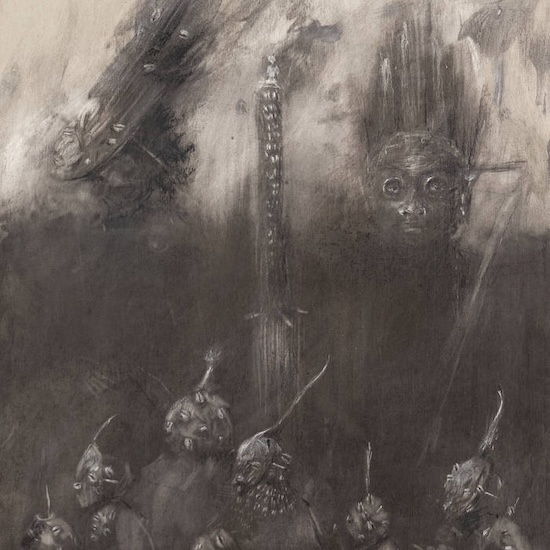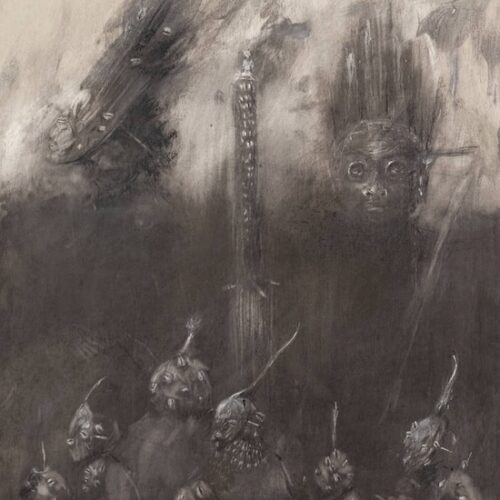When HM Treasury tweeted in February 2018, “Here’s today’s surprising #FridayFact. Millions of you helped end the slave trade through your taxes,” their spectacularly misguided self-congratulation reinforced the whitewashing of Britain’s wretched legacies. North Philadelphia experimental sound artist, poet and community activist, Moor Mother (aka Camae Ayewa), turns her attention to this in her ninth studio album The Great Bailout, a dauntless dissection of the British slave trade, slavery and colonialism.
Starting with the raspy, lamenting vocals of Lonnie Holley, a ghost from the past watching slave ships being unloaded, ‘Guilty’ is a deeply affecting opener. It is punctuated with Ayewa’s spoken word, “Taxpayers of erasure, of relapse, of amnesia / Did you pay off the drama?”, which introduces the salient theme of the record. Namely, the aforementioned tweet and its reference to the loan which was taken out under the 1835 Slavery Abolition Act. To appease 46,000 British slave owners who were losing their human ‘property’ under the Act, a modern equivalent of £17 billion was paid out by British taxpayers (including, perversely, those descended from the enslaved).
Moor Mother shows the research that this album is rooted in on ‘All the Money’ which takes on a sinister register as it runs through historic landmarks of London. It’s interrogated by darkly overlapping whispers that repeatedly ask, “Who gave you all the money?” Al Sultani’s undulating operatic voice conjures an image of British aristocracy which drifts in and out like a recurring nightmare involving violence and theft.
‘Compensated Emancipation’ features Kyle Kidd belting out a gutsy blues juxtaposed with a pervasive drone that builds with tension. It is a reverently immersive event. Ayewa’s most incisive words on this album are here, “The Queen will be coming around to tell me more about Blackness / You will understand the hostile environment of breathing, walking, talking, dreaming against the law.”
Space and place are investigated in ‘Liverpool Wins’ which plays with electronic industrial sounds to evoke the building of an Empire with blood. The album closes with ‘Quantum’, a deeper dive into Ayewa’s school of thought as one half of Black Quantum Futurism – centred around the idea linear time keeps oppressed people in narrow temporal bands where they can’t access their past or future to control their own narrative. Her previous works like Black Encyclopedia of the Air and Jazz Codes are drenched in this fascinating extension of Afrofuturism and Black musical traditions as a vehicle for political thought – also evident in Ayewa’s free jazz collective, Irreversible Entanglements. Similarly, in The Great Bailout Ayewa recontextualises history to show its scars on our present-day environment.
The Great Bailout is a hauntingly edifying experience born out of intergenerational trauma, political rage and suffering. Echoey vocals and experimental composition hold this album up as a house of mirrors – a forceful confrontation with an ugly past with no way out. Its counterpoint is a feeling of strength. Through this comes a profound sense of recovery, a restoration of freedom.



